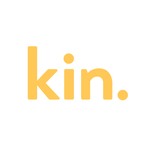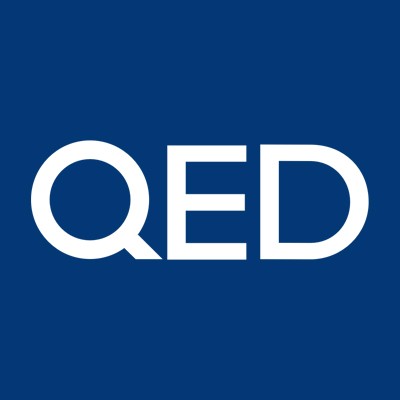Kin Insurance Secures $2 Billion Valuation Amidst Major Funding Rounds
September 9, 2025, 3:39 pm
Kin Insurance just closed a significant $50 million Series E funding round. This milestone pushes its pre-money valuation to an impressive $2 billion. Additionally, the company secured a robust $200 million debt facility. This capital injection reinforces Kin's position as a leading insurtech innovator. The direct-to-consumer digital home insurer now commands $286 million in total primary equity. Demonstrating robust financial performance, Kin has been profitable since 2023. It strategically operates in 13 states, focusing on regions highly vulnerable to natural disasters. Kin utilizes sophisticated data analytics. This technology provides precise risk assessment and customized, affordable coverage. Their model disrupts traditional insurance. It offers a vital safety net where legacy insurers struggle. Future initiatives include accelerated growth, new product launches like car insurance, and further market expansion. Kin reshapes the entire homeowners insurance industry.
Kin Insurance stands at a pivotal moment. The digital home insurance provider recently announced a substantial Series E funding round. This infusion totals $50 million. It pushes the company's pre-money valuation to an impressive $2 billion. This financial achievement underscores Kin's rapid ascent in the competitive insurtech landscape.
The Series E round saw significant participation. QED Investors and Activate Capital led the equity investment. Other new and returning investors also contributed. This latest round brings Kin's total primary equity raised to $286 million. This demonstrates strong investor confidence in its business model.
Beyond equity, Kin also secured a robust $200 million debt facility. Wellington Management spearheaded this debt financing. A significant portion, $145 million, was used to repay existing debt. This strategic move provides Kin with $105 million in incremental capital. This capital fuels further growth and development. It enables the launch of additional reciprocal exchanges. It also supports investment in new product lines.
Kin operates as a direct-to-consumer (D2C) digital insurance provider. This model eliminates the need for external agents. It streamlines the insurance process. It reduces overhead costs. This efficiency translates into more competitive pricing for homeowners. The company’s focus is on the rapidly evolving homeowners insurance market.
Technology drives Kin’s operations. Its platform leverages advanced data analytics. Thousands of data points are analyzed for each property. This granular analysis allows for highly accurate pricing. It enables customized coverage options. This approach is critical in understanding unique risk profiles. It serves homeowners in challenging environments.
Kin strategically targets states most affected by natural disasters. It currently serves customers across 13 states. These include Alabama, Arizona, California, Colorado, Florida, Georgia, Louisiana, Mississippi, Missouri, South Carolina, Tennessee, Texas, and Virginia. These regions often face severe weather events. Many traditional insurers struggle or withdraw from these markets.
Kin's model directly addresses this critical gap. It provides essential protection where it is most needed. Its data-driven approach allows for precise risk assessment. This allows Kin to offer policies other insurers deem too risky. This innovative strategy offers a vital financial service to homeowners. It ensures they remain protected against unforeseen events.
Financial performance highlights Kin's success. The company boasts over $600 million in inforce premiums. Its total insured property value exceeds $100 billion. These figures demonstrate significant market penetration. They reflect strong customer adoption. Crucially, Kin has been profitable since 2023. This is a rare feat for a rapidly growing tech startup. It showcases a sustainable business model.
The insurtech industry is dynamic. Kin leads its transformation. It leverages technology to adapt to changing environmental realities. Climate change creates new challenges for property owners. It impacts insurance availability. Kin’s proactive stance offers a viable solution. It helps humanity adapt to the current situation.
Growth is a key objective for Kin. The recent funding accelerates these plans. It will expand Kin’s footprint in existing markets. It will facilitate entry into new geographical areas. This expansion focuses on scalability and sustainability. It maintains a strong customer-centric approach.
Innovation extends beyond home insurance. Kin is actively working on new offerings. A car insurance product is in development. This diversification broadens Kin’s market reach. It offers integrated insurance solutions. The company also seeks mortgage loan officers. This suggests potential ventures into related financial services. These moves indicate a broader vision for comprehensive customer support.
Kin's success stems from its core philosophy. It builds insurance differently. Its unique use of data and expert analysis offers a superior product. It provides a better understanding of individual home risks. This leads to customized, reliable protection. The company's direct model fosters efficiency. It ensures a high-quality claims service.
The company's mission is clear. It provides a critical safety net. This net is disappearing just when people need it most. Kin's technology-first approach addresses this urgent need. It delivers an essential service with precision and empathy. It empowers homeowners in high-risk areas.
Kin’s impressive valuation reflects its market impact. Investors recognize its potential for continued disruption. The capital secured will fortify its technological edge. It supports continued product development. It solidifies its position as a market leader. Kin is not just writing policies. It is redefining the entire insurance industry. It builds resilience for homeowners nationwide.
Kin Insurance stands at a pivotal moment. The digital home insurance provider recently announced a substantial Series E funding round. This infusion totals $50 million. It pushes the company's pre-money valuation to an impressive $2 billion. This financial achievement underscores Kin's rapid ascent in the competitive insurtech landscape.
The Series E round saw significant participation. QED Investors and Activate Capital led the equity investment. Other new and returning investors also contributed. This latest round brings Kin's total primary equity raised to $286 million. This demonstrates strong investor confidence in its business model.
Beyond equity, Kin also secured a robust $200 million debt facility. Wellington Management spearheaded this debt financing. A significant portion, $145 million, was used to repay existing debt. This strategic move provides Kin with $105 million in incremental capital. This capital fuels further growth and development. It enables the launch of additional reciprocal exchanges. It also supports investment in new product lines.
Kin operates as a direct-to-consumer (D2C) digital insurance provider. This model eliminates the need for external agents. It streamlines the insurance process. It reduces overhead costs. This efficiency translates into more competitive pricing for homeowners. The company’s focus is on the rapidly evolving homeowners insurance market.
Technology drives Kin’s operations. Its platform leverages advanced data analytics. Thousands of data points are analyzed for each property. This granular analysis allows for highly accurate pricing. It enables customized coverage options. This approach is critical in understanding unique risk profiles. It serves homeowners in challenging environments.
Kin strategically targets states most affected by natural disasters. It currently serves customers across 13 states. These include Alabama, Arizona, California, Colorado, Florida, Georgia, Louisiana, Mississippi, Missouri, South Carolina, Tennessee, Texas, and Virginia. These regions often face severe weather events. Many traditional insurers struggle or withdraw from these markets.
Kin's model directly addresses this critical gap. It provides essential protection where it is most needed. Its data-driven approach allows for precise risk assessment. This allows Kin to offer policies other insurers deem too risky. This innovative strategy offers a vital financial service to homeowners. It ensures they remain protected against unforeseen events.
Financial performance highlights Kin's success. The company boasts over $600 million in inforce premiums. Its total insured property value exceeds $100 billion. These figures demonstrate significant market penetration. They reflect strong customer adoption. Crucially, Kin has been profitable since 2023. This is a rare feat for a rapidly growing tech startup. It showcases a sustainable business model.
The insurtech industry is dynamic. Kin leads its transformation. It leverages technology to adapt to changing environmental realities. Climate change creates new challenges for property owners. It impacts insurance availability. Kin’s proactive stance offers a viable solution. It helps humanity adapt to the current situation.
Growth is a key objective for Kin. The recent funding accelerates these plans. It will expand Kin’s footprint in existing markets. It will facilitate entry into new geographical areas. This expansion focuses on scalability and sustainability. It maintains a strong customer-centric approach.
Innovation extends beyond home insurance. Kin is actively working on new offerings. A car insurance product is in development. This diversification broadens Kin’s market reach. It offers integrated insurance solutions. The company also seeks mortgage loan officers. This suggests potential ventures into related financial services. These moves indicate a broader vision for comprehensive customer support.
Kin's success stems from its core philosophy. It builds insurance differently. Its unique use of data and expert analysis offers a superior product. It provides a better understanding of individual home risks. This leads to customized, reliable protection. The company's direct model fosters efficiency. It ensures a high-quality claims service.
The company's mission is clear. It provides a critical safety net. This net is disappearing just when people need it most. Kin's technology-first approach addresses this urgent need. It delivers an essential service with precision and empathy. It empowers homeowners in high-risk areas.
Kin’s impressive valuation reflects its market impact. Investors recognize its potential for continued disruption. The capital secured will fortify its technological edge. It supports continued product development. It solidifies its position as a market leader. Kin is not just writing policies. It is redefining the entire insurance industry. It builds resilience for homeowners nationwide.


